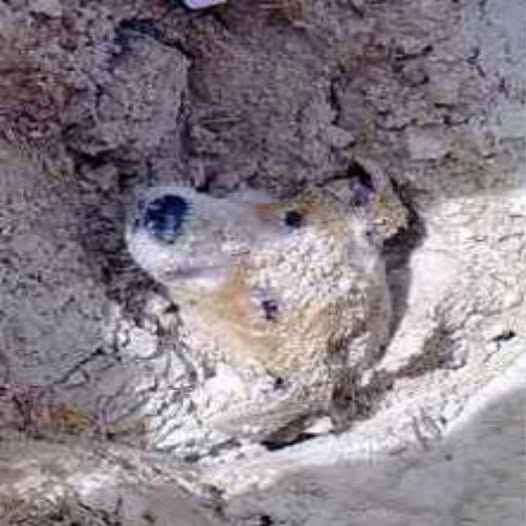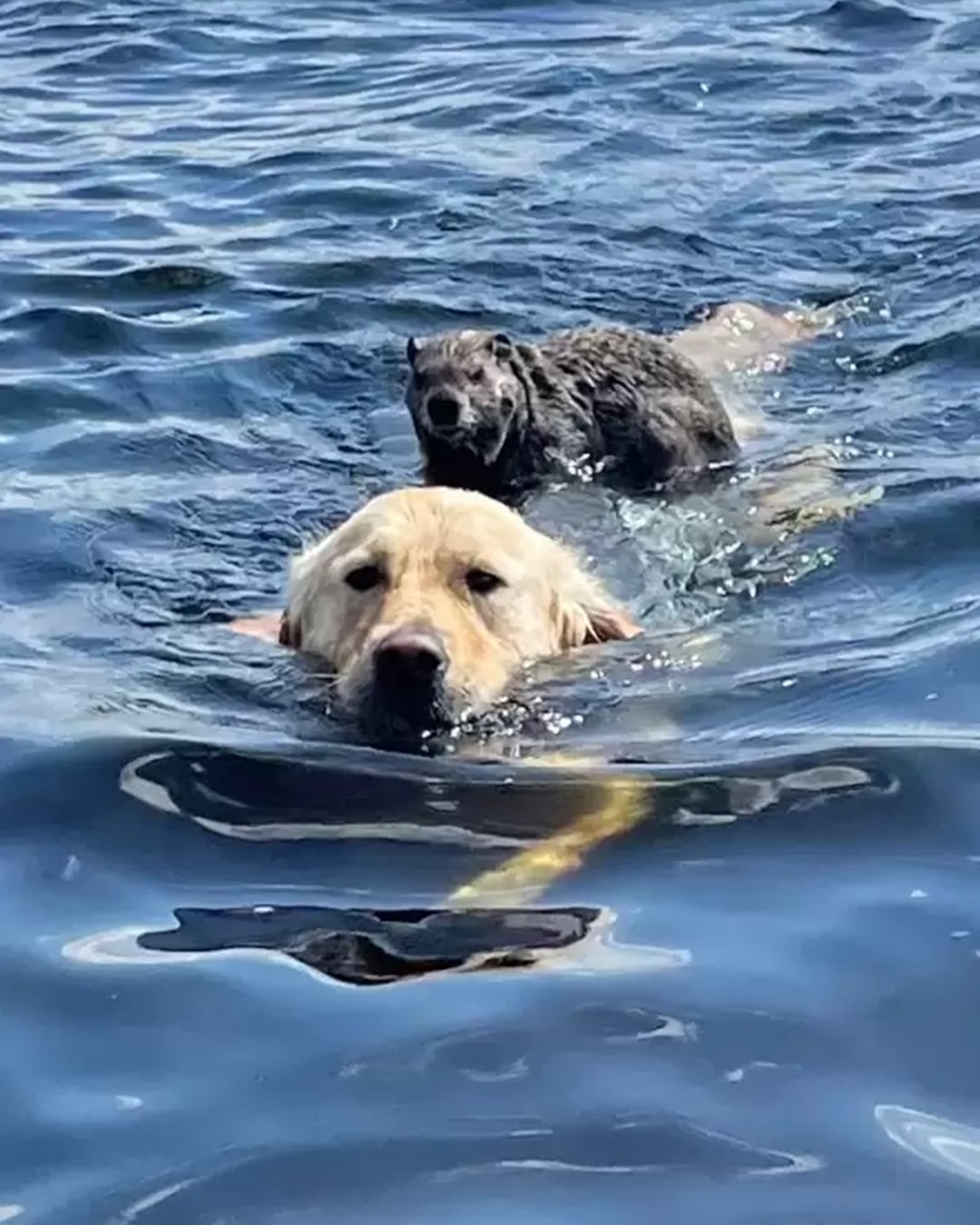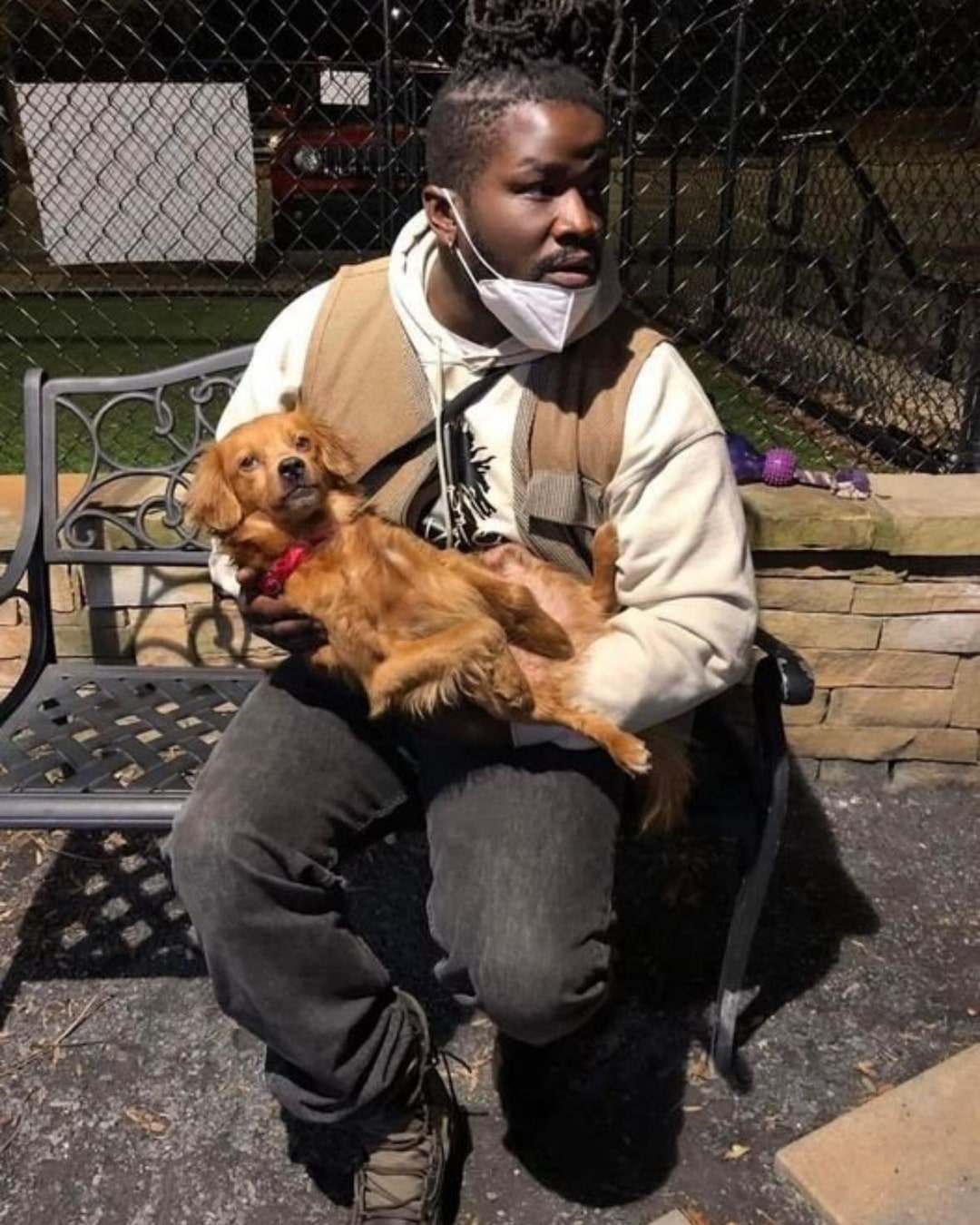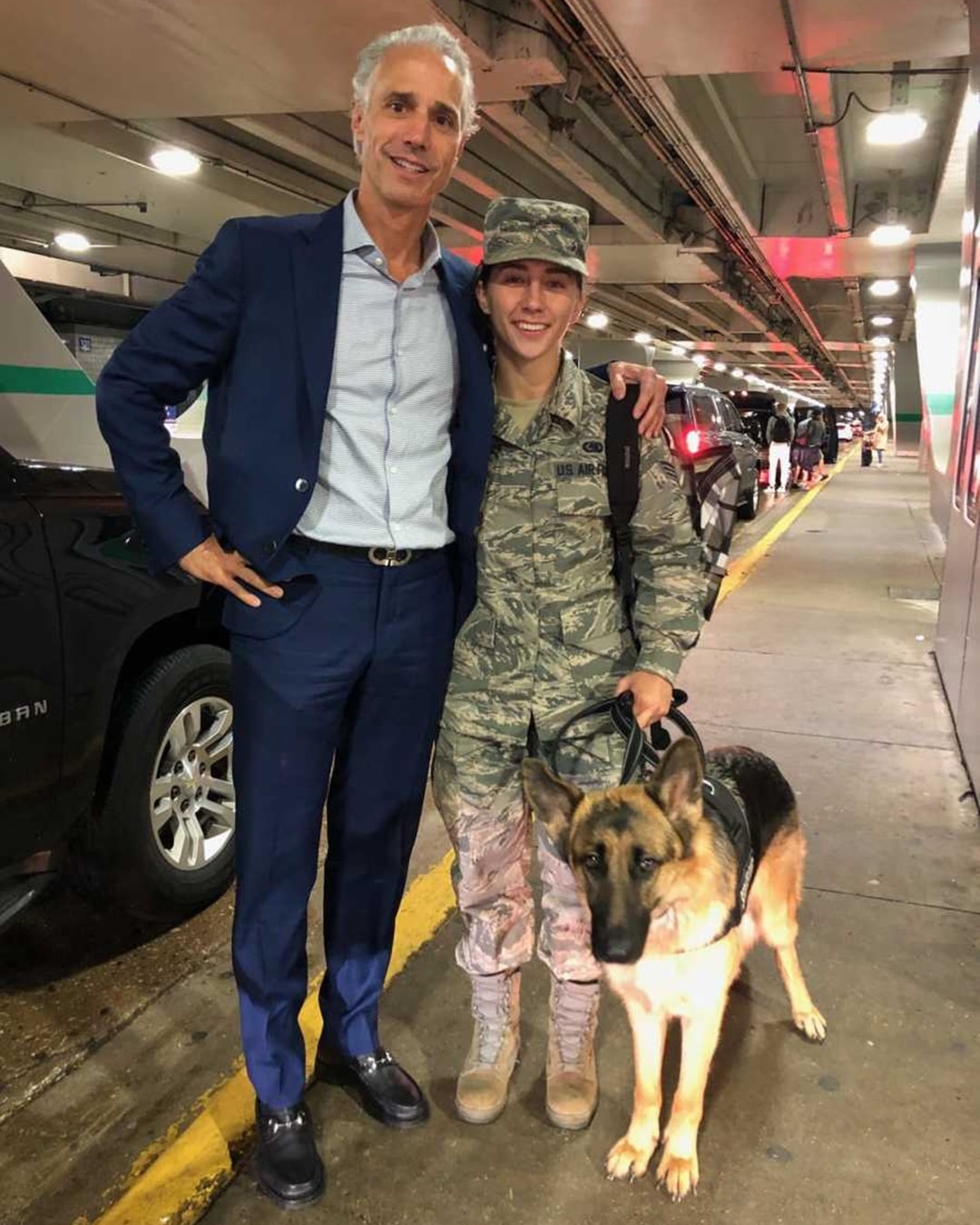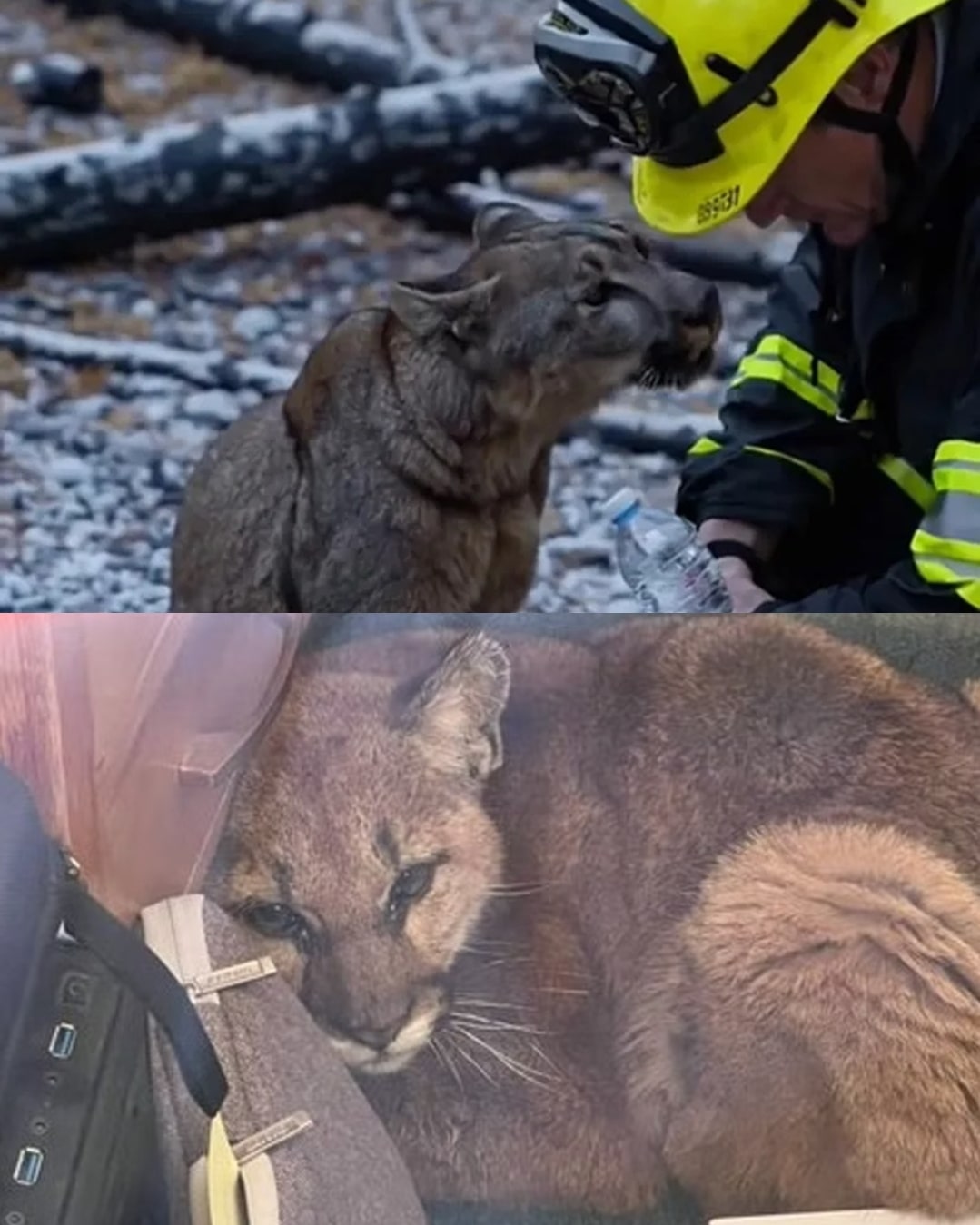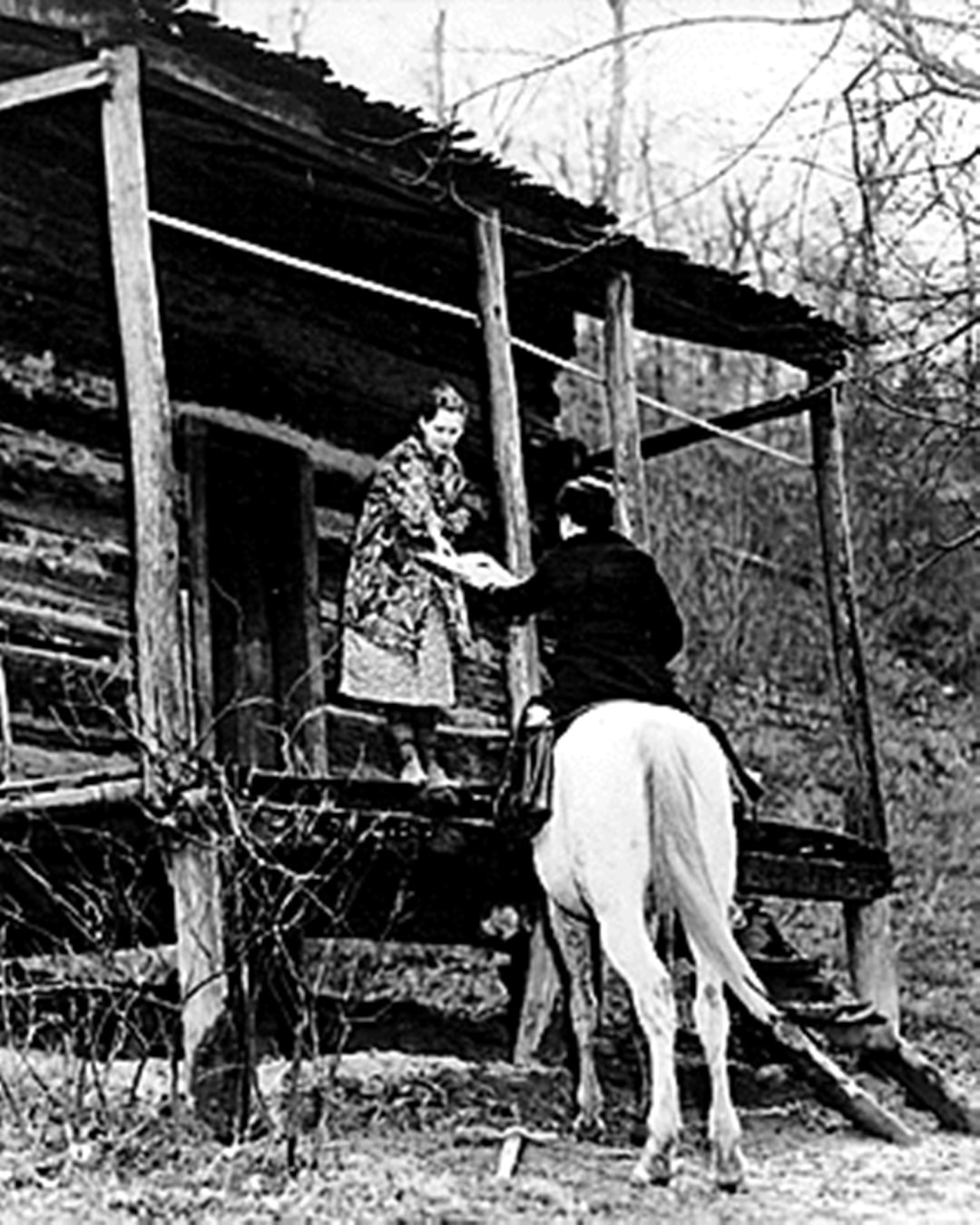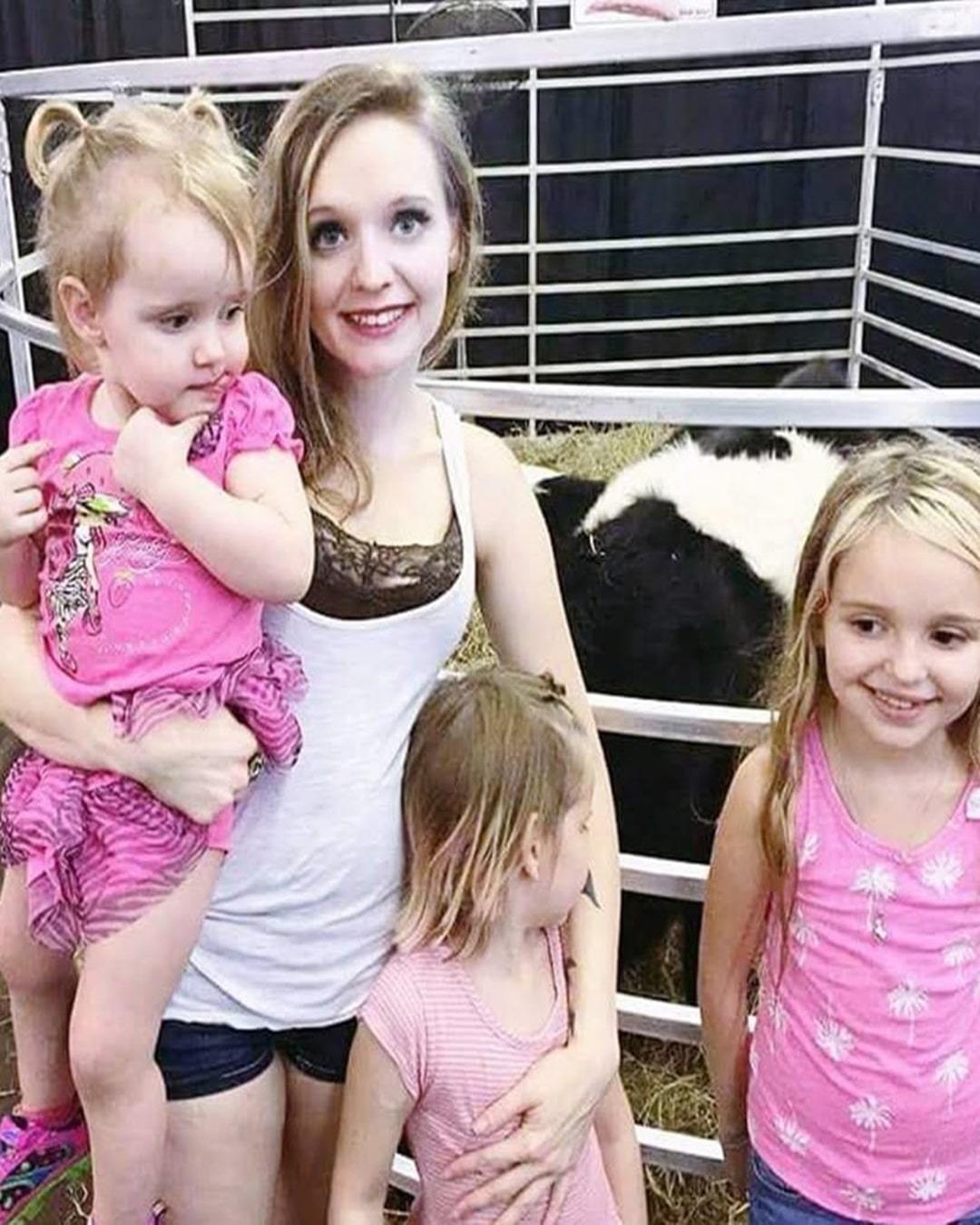On a hot summer day, Lauren and her husband took their golden retriever, Wally, out for a swim. Wally, wearing his little shark life vest, was happily paddling in circles when something surprising appeared—a woodchuck, bobbing in the water.
Before they could react, the little creature leapt onto Wally’s back.
Many dogs would have barked or shaken the stowaway off, but not Wally. He calmly turned his head, acknowledged his passenger, and swam steadily toward shore. When they reached land, the woodchuck slid off, gave Wally a soft snout-to-snout “goodbye,” and scurried away.
Wally, unfazed, went right back to swimming—because for him, kindness isn’t unusual, it’s just who he is.
That day, on a quiet lake, a dog and a wild woodchuck reminded everyone watching that trust and friendship can bloom in the most unexpected ways.
The moments following the woodchuck’s departure were filled with a kind of stunned, joyful silence. Lauren and her husband stood on the shore, watching as Wally, their gentle giant, simply resumed his happy paddling as if nothing extraordinary had happened. To him, it was just another swim. To them, it was a profound display of a character so pure and gentle that it defied expectation. This wasn’t a trained rescue; it was an instinctual act of grace. The event, lasting only a few minutes, became a story that would ripple far beyond the shores of that quiet lake, serving as a powerful antidote to the cynicism of the modern world. In an age saturated with bad news, the simple story of a golden retriever and his woodchuck passenger became a beacon of hope, a viral testament to the idea that goodness exists in its most unadulterated form.
What is it about Wally’s actions that resonates so deeply with us? Perhaps it’s the sheer unexpectedness of the encounter. Dogs and woodchucks typically exist in a state of mutual suspicion, one the cheerful domestic companion and the other a wild, burrowing creature wary of predators. We would expect barking, chasing, or at the very least, a panicked confusion. Instead, Wally offered stability. In that critical moment, the woodchuck, likely exhausted and terrified of drowning, saw not a threat, but a living, breathing island. Wally, in turn, saw not an intruder, but a creature in need. He did not calculate or hesitate; he simply accepted the situation and did what needed to be done. This is the essence of true empathy—an innate ability to understand and share the feelings of another, transcending the boundaries of species.
This quiet heroism is deeply woven into the fabric of the golden retriever breed. Originally bred in Scotland as gundogs, their purpose was to retrieve waterfowl gently, without causing harm. This required a “soft mouth,” an instinct to carry things with care. Over generations, this specific trait has blossomed into a famously gentle and trustworthy temperament. They are renowned for their patience with children, their loyalty to their families, and their generally affable approach to life. Wally’s calm acceptance of his furry passenger is, in many ways, the ultimate expression of his ancestry. He was retrieving, not a bird for a hunter, but a life from the water for the sake of kindness itself. His actions were a pure distillation of his breed’s best qualities, a living example of how genetics and a loving environment can cultivate a soul of exceptional gentleness.
The story also forces us to reflect on our own human interactions. In a world where we are often quick to judge, to build walls, and to fear the “other,” Wally’s immediate acceptance is a powerful lesson. He did not question the woodchuck’s motives or see it as an inconvenience. He simply felt its desperation and offered his back as a platform to safety. This simple, non-transactional kindness is something many humans strive for but often fail to achieve. We are conditioned to ask, “What’s in it for me?” or “Is this person deserving of my help?” Wally asked no such questions. His help was a reflex, as natural to him as breathing. This animal friendship, brief as it was, serves as a mirror, challenging us to be more like Wally—to lead with compassion and to offer help without reservation when we see another being in distress.
The global fascination with stories like this reveals a deep-seated human need for purity and goodness. We are constantly bombarded with news of conflict, division, and tragedy. It can be easy to believe that the world is a dark and unforgiving place. Then, a story like Wally’s cuts through the noise. It reminds us that interspecies friendships, acts of selfless kindness, and quiet heroism are happening all around us. These narratives are not mere distractions; they are emotional nourishment. They reset our moral compass and reaffirm our belief in the possibility of a better world. The image of a dog in a shark vest calmly chauffeuring a woodchuck to safety is so beautifully absurd and so profoundly good that it becomes a universal symbol of hope.
Ultimately, the tale of Wally and the woodchuck is more than just a cute animal story. It is a parable for our times. It teaches us that empathy is a universal language, that trust can be built in an instant, and that the greatest strength often lies in the gentlest of souls. Wally didn’t set out to be a hero; he was just being himself. And in being himself, he demonstrated a form of unconditional love and acceptance that we can all learn from. The woodchuck’s soft “goodbye” nuzzle was more than just a simple gesture; it was a moment of genuine connection, a thank you that transcended words. It was a fleeting acknowledgment that for a few precious moments, in the middle of a vast lake, two very different creatures shared a journey, bound by a simple, powerful act of kindness that would go on to inspire countless hearts around the world.
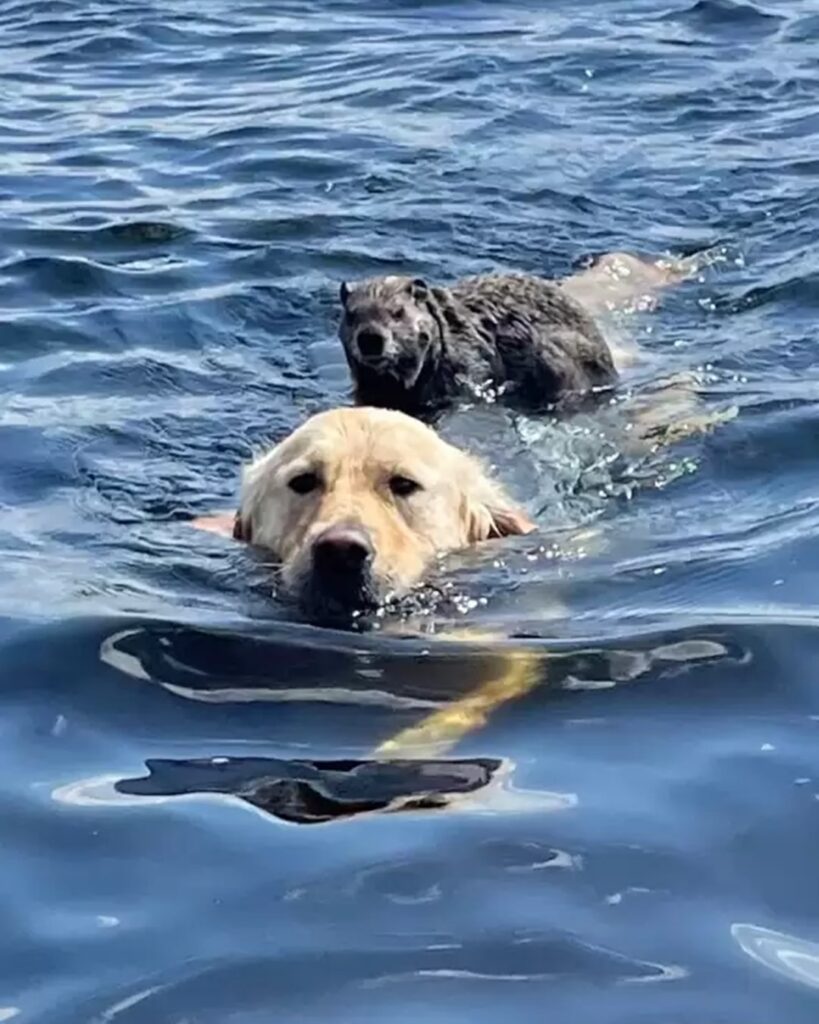
On a hot summer day, Lauren and her husband took their golden retriever, Wally, out for a swim. Wally, wearing his little shark life vest, was happily paddling in circles when something surprising appeared—a woodchuck, bobbing in the water. Before they could react, the little creature leapt onto Wally’s back. Many dogs would have barked or shaken the stowaway off, but not Wally. He calmly turned his head, acknowledged his passenger, and swam steadily toward shore. When they reached land, the woodchuck slid off, gave Wally a soft snout-to-snout “goodbye,” and scurried away. Wally, unfazed, went right back to swimming—because for him, kindness isn’t unusual, it’s just who he is. That day, on a quiet lake, a dog and a wild woodchuck reminded everyone watching that trust and friendship can bloom in the most unexpected ways.
